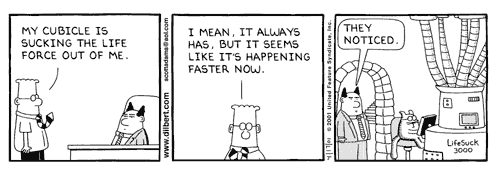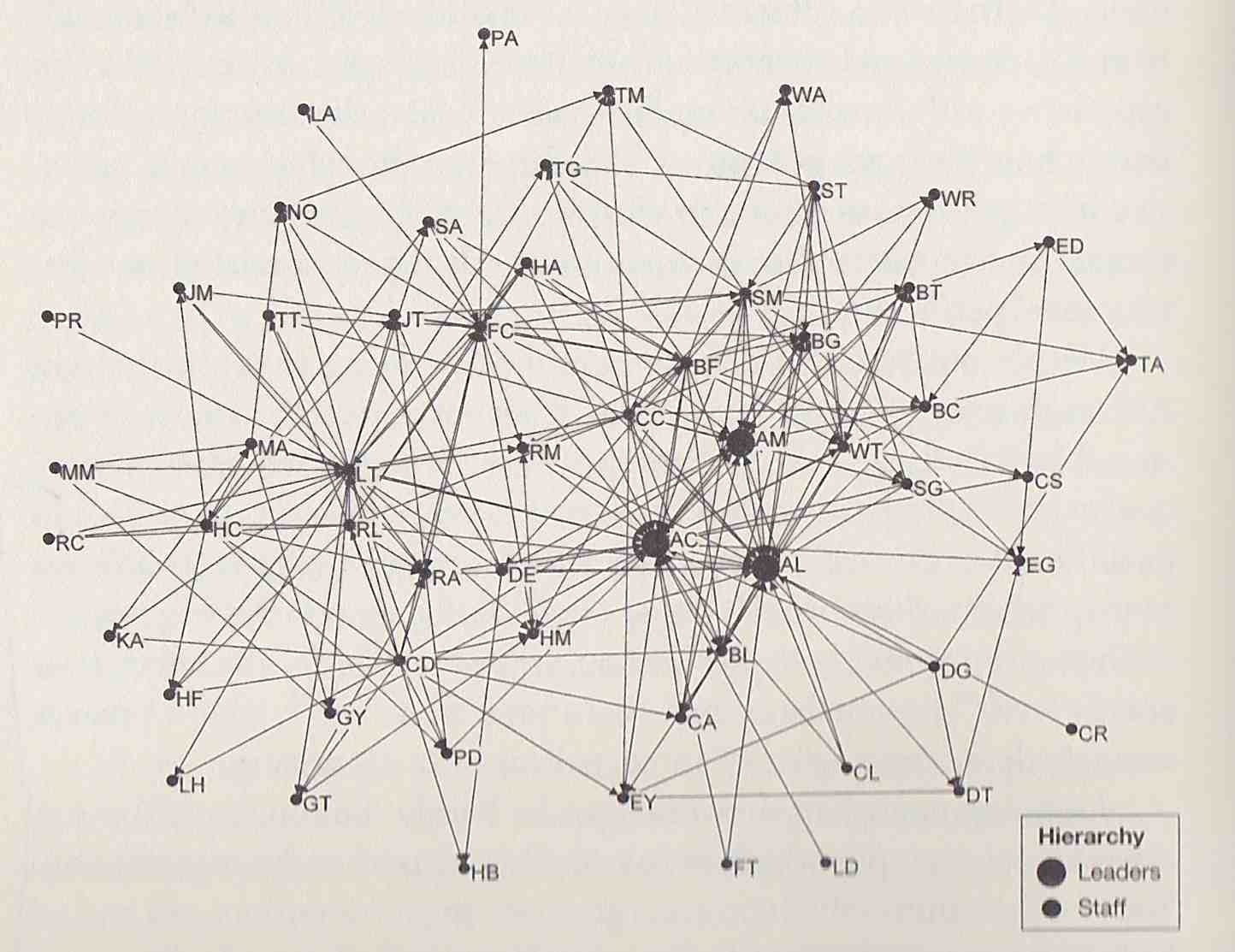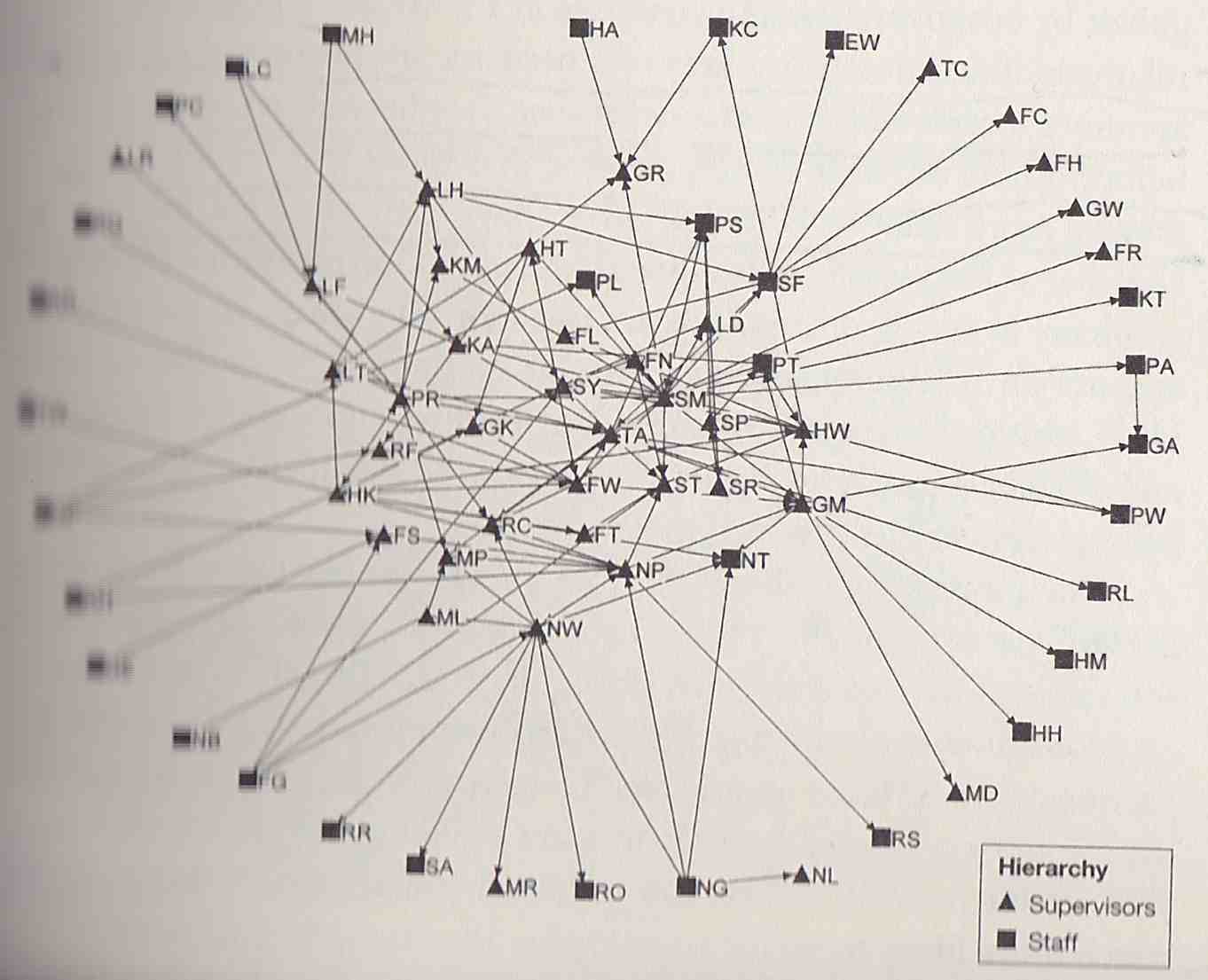Positive Energy Leads To Promotions. Here’s How You Can Increase It.
.
Positive Energy Is What Markets Ideas Within An Organization
Positive energy is powerful.
No, this has nothing to do with crystals, karma, aligned chakras and Pollyanna optimism.
Researchers assessed who had it in companies and were able to determine which people attract others and which projects generate enthusiasm — and success.
Via The Hidden Power of Social Networks: Understanding How Work Really Gets Done in Organizations:
We assessed energy in seven large groups in different organizations by using social network analysis techniques to map relationships in each group. Specifically, we asked this question: “When you interact with this person, how does it typically affect your energy level?” Respondents indicated a value from 1 to 5, where 1 meant strongly de-energizing and 5 indicated strongly energizing.
Assessing energy in networks can be highly illuminating. You can discover, for example, which people are “attractors” in the organization. You can determine which projects generate the most enthusiasm and so have the greatest likelihood of success. You can find out whether reorganizations or other large-scale changes are having the desired effect.
The difference is striking.
Here’s the company network that “energized” managers end up creating.
Via The Hidden Power of Social Networks: Understanding How Work Really Gets Done in Organizations:

And here’s what de-energizing managers produce.
Via The Hidden Power of Social Networks: Understanding How Work Really Gets Done in Organizations:

Which one do you think promotes more communication, innovation and understanding?
Exxxxxxxactly.
People with positive energy are much higher performers.
Via The Hidden Power of Social Networks: Understanding How Work Really Gets Done in Organizations:
We found in all three settings that performance was closely connected to people’s positions in the energy network. Even after accounting for the use of various personal and impersonal sources of information, we found that those who energized others were much higher performers.
They get promoted earlier and advance because they hear about more opportunities. They get heard and their ideas move forward.
Via The Hidden Power of Social Networks: Understanding How Work Really Gets Done in Organizations:
Those who bridge relatively disconnected pockets of a network are promoted earlier and are more mobile in their careers because they hear about opportunities before others do. Our results suggest that those who energize others may be more likely to be heard and to have their ideas put into action… Having an epiphany is no big deal unless you can motivate others to believe in it and act on it.
Not only that, but they also raise the performance of those around them.
Via The Hidden Power of Social Networks: Understanding How Work Really Gets Done in Organizations:
Not only were energizers better performers, but people who were closely connected to energizers were also better performers. In other words, energizers raise the overall level of performance around them.
So what do you need to do to be an “energizer”?
8 Ways To Increase Your Positive Energy
Analyzing the behaviors of energizers and de-energizers, Cross and Parker suggest these eight ways to improve.
1) At Work, Make Time To Connect With Others As People
Via The Hidden Power of Social Networks: Understanding How Work Really Gets Done in Organizations:
Do you make an effort to weave relationship development into work and day-to-day actions? Even when you feel swamped, do you make time to engage with others as people and not as means to an end? If you have concern for others and make connections outside work-based roles, you promote trust and a belief in your integrity.
2) Do What You Say You’re Going To Do
Via The Hidden Power of Social Networks: Understanding How Work Really Gets Done in Organizations:
Do you do what you say you are going to do? People are energized by a specific task or goal only if they can believe in the integrity of the other person (or people) involved. When energy is created, people let go of their reservations and allow themselves to become enthusiastic.
3) Make It Bigger Than Your Wants
Via The Hidden Power of Social Networks: Understanding How Work Really Gets Done in Organizations:
People are energized in the presence of others who stand for something larger than themselves. The energizer often benefits from the pursuit, but the pursuit is focused on doing the right thing and not exclusively on personal gain.
4) Acknowledge The Positives, Not Just The Problems
Via The Hidden Power of Social Networks: Understanding How Work Really Gets Done in Organizations:
Do you look for possibilities or identify only constraints? …de-energizers do not acknowledge positive aspects of a situation but choose instead to focus on problems… (This) approach overlooks people’s contributions and robs them of a belief that their contributions matter.
5) Criticize Ideas, Not People
Via The Hidden Power of Social Networks: Understanding How Work Really Gets Done in Organizations:
When you disagree with someone, do you focus attention on the issue and not on the value of that person’s contributions? …Energizers are able to disagree with an idea while not marginalizing the person who presented it.
6) Be Visibly And Sincerely Enthusiastic
Via The Hidden Power of Social Networks: Understanding How Work Really Gets Done in Organizations:
Are you mentally and physically engaged in meetings and conversations? …Rather than go through the motions of being engaged – something that is much more transparent than many de-energizers think – energizers physically and mentally show their interest in the person and the topic of the conversation.
7) Look For Ways to Allow Others To Contribute
Via The Hidden Power of Social Networks: Understanding How Work Really Gets Done in Organizations:
Are you flexible, or do you force others to come to your way of thinking? Energizers draw people into conversations and projects by finding opportunities for them to contribute…
8) Don’t Let Your Expertise Make Others Feel Inferior
Via The Hidden Power of Social Networks: Understanding How Work Really Gets Done in Organizations:
Do you use your expertise appropriately? Expertise, if used too aggressively, shuts down innovative thinking and strips others of the opportunity to contribute.
Join 45K+ readers. Get a free weekly update via email here.
Related posts:
What good work habits do nearly all geniuses have in common?
Checklist: Are you doing these five things to be more effective at work?




